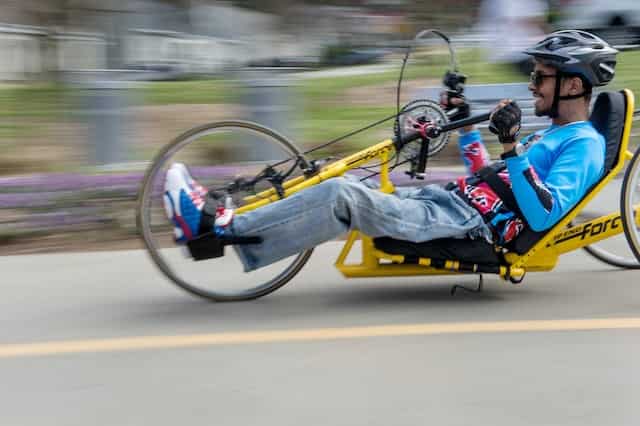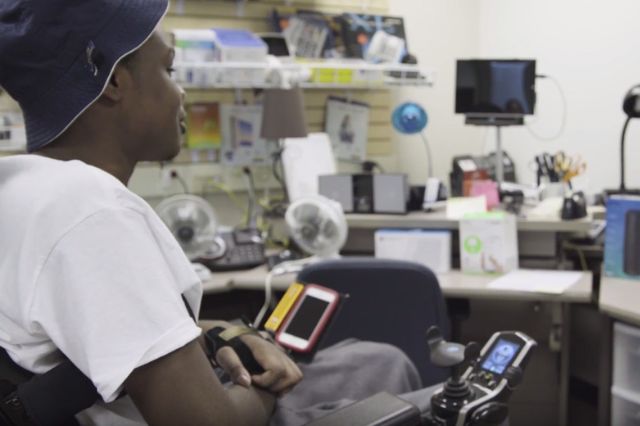Georgia Model Brain Injury System
GAMBIS Research Focus
Shepherd Center partners with key stakeholders to lead the Georgia Model Brain Injury System (GAMBIS). The mission of GAMBIS is to improve the employment, financial, health, and community participation outcomes of individuals with traumatic brain injury (TBI), particularly for minority and underserved populations.
TBI Model Systems
Shepherd Center is one of the 16 Traumatic Brain Injury Model Systems (TBIMS) Centers funded by the National Institute on Disability, Independent Living, and Rehabilitation Research (NIDILRR). Participation in this multi-center project allows Shepherd Center to participate in data collection that will be used to increase clinical knowledge of moderate/severe traumatic brain injury and improve the understanding of how best to provide treatment and services for TBI. Participation in TBIMS will also allow us to follow individuals with TBI over their lifetime to better understand the experiences of people living with traumatic brain injury long-term.
Being awarded the TBIMS grant for the 2022-2027 cycle has also allowed us to conduct innovative research on vocational rehabilitation services through our Site-Specific project, “Improving Employment Outcomes of Persons with Moderate/Severe TBI.” The goal of the study is to validate novel vocational rehabilitation (VR) interventions coordinated between hospital-based and state VR programs. Our primary project objective is to identify the most clinically and financially effective VR services for individuals with the most significant TBIs. We will also translate knowledge and develop materials tailored for each stakeholder to help improve employment outcomes for individuals with TBI.
Current GAMBIS Research Studies
Longitudinal Study
- Individuals with moderate to severe TBI in the Georgia Model Brain Injury System (GAMBIS) at Shepherd Center are followed in this multi-center, longitudinal study that seeks to learn more about the medical care, health and well-being, quality-of-life, and general life experiences of people living with TBI over their lifetime.
Site Specific Study
- The general purpose of this study is to determine if transitional vocational rehabilitation and transitional vocational rehabilitation with on-the-job-training interventions will help to improve the employment, health, and community participation outcomes of individuals with TBI.
Modular 1: Social Determinants of Health and TBI
Project Lead Center: Ohio Regional TBIMS
- Social determinants of health (SDoH) introduce risk factors that vary at the individual level (e.g., the person’s socioeconomic position, race/ethnicity, or social support), as well as environmental level (e.g., their community’s socioeconomic resources, housing, public safety, or the quality and availability of health and social services). This study aims to investigate the effect of social vulnerabilities due to SDoH on outcomes from TBI via a sequential explanatory mixed methods design.
Modular 2: Engaging Caregivers in Outcome Assessment Across the Lifespan (PASSD-TBI)
Project Lead Center: Spaulding-Harvard TBIMS
- There are gaps in knowledge of the post-acute phase of recovery from severe TBI. In this study, researchers seek to obtain valid data from caregivers on changes in function experienced by persons with severe disability after TBI to better understand the factors that influence effective caregiving. The primary objectives of this study are to 1) develop short forms for the “Patient Outcome” and “Influences on Caregiving” sections of the Post-Acute Survey on Severe Disability after TBI (PASSD-TBI) using advanced statistical approaches and 2) establish a minimally clinically important difference (MCID) score for the “Patient Outcome” section of the PASSD-TBI short form.
Our GAMBIS Research Team
- Brick Johnstone, Ph.D., ABPP, Project Director
- Nicole Thompson, MPH, Project Administrator
- Dalton Hill, Data Collector
- Kelle Froberg, Vocational Specialist
- Alex Toliver, Vocational Specialist
- Raeda Anderson, Statistician
- Zac Bradley, Vocational Specialist
Our GAMBIS Collaborators
- Georgia Vocational Rehabilitation Agency (GVRA)
- Council of State Vocational Administrators of Vocational Rehabilitation (CSVAR)
- Anthony Stringer
Funding information: Georgia Model Brain Injury System is funded by a 5-year grant from the National Institute on Disability, Independent Living Rehabilitation Research (NIDILRR) in the U.S. Department of Health and Human Services (grant number 90DPTB0033). The project timeline spans 09/01/2022 -8/31/2027.





